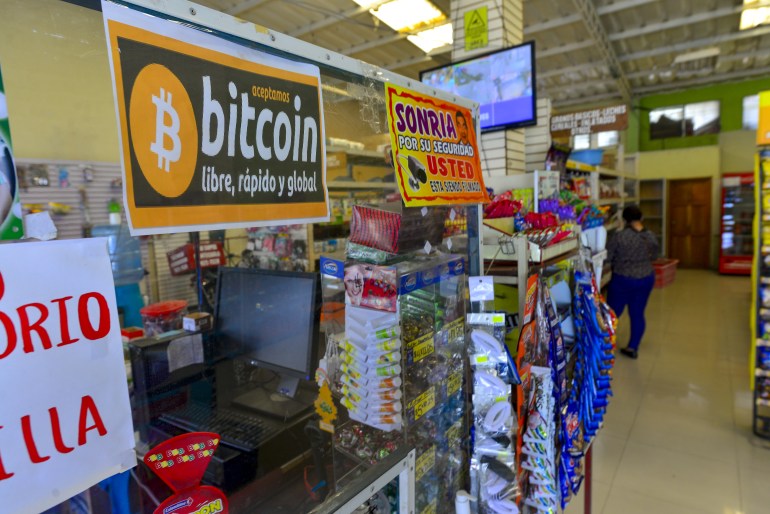In June 2021, El Salvador surprised the world by adopting Bitcoin as a legal currency in the country next to the US dollar.
And the American website Fortune reported that El Salvador's plan, to be the first country to adopt Bitcoin as its official currency, ended in a catastrophic failure of its economy and chaos by all standards.
He explained that there are fears that the global police for money laundering is preparing to take strict action against El Salvador, and that this experience has undermined confidence in its president's economic program to the point that his country's debts are now being sold at 36 cents to the dollar.
The site said that El Salvador's economy was doing well when the dollar was its main currency before it was replaced by bitcoin. By 7%, its economy has grown at a better rate than the average of its Latin American neighbours.
Despite this exemplary cash record, after his election in May 2019, President Nebbi Bukele (37) moved the future of his economy to Bitcoin last June, and passed a law making Bitcoin an official currency, but the rules applied to it were a stunning departure from the previous model. which was working fine.
The new law requires all merchants and banks to accept bitcoin for payment from any consumer or other company willing to pay with it, meaning that dealing with bitcoin has become compulsory.
Bukele's justification was that dealing with bitcoin would greatly improve "financial inclusion" by giving a broad cross-section of the 70 percent of Salvadorans - who lack bank accounts - access to financial services, and would also reduce fees for remittances from migrants into the country.
At first glance, Bukele's main arguments made sense and attracted international renown that made him a popular hero in crypto circles, given that El Salvador's economy depends heavily on the remittances of its immigrants, which account for a quarter of its gross domestic product, the highest share of any country in the Western Hemisphere.
The site quoted Steve Hanke, professor of applied economics at Johns Hopkins University, as saying that those arguments were a typical lie, as remittance costs in El Salvador ranked sixth in the lowest level in a survey of 104 countries, at 2.8%.
"But that policy has fulfilled Bukele's real goal, which is to strengthen his grip on the nation. He forces his enemies to follow the Bitcoin law, and if they don't, he puts them in jail, and allows his friends to ignore the law."
Bukele lured users by offering everyone who signed up for the government remittance app a $30 bitcoin reward that would be kept in a digital wallet called Shifu, which Hanke described as a “bribe to sign up for the app.” But those who got it spent mostly $30 in cryptocurrency. For dollars, they got rid of the app.
There are fears that global money laundering police are preparing to crack down on El Salvador (Getty Images)
Ignorance of Bitcoin
The American website pointed out that one of the problems faced by Bukele’s plan was widespread ignorance of the new currency. A survey of the University of Central America found that 9 out of 10 Salvadorans do not know what Bitcoin is, and that 8 out of 10 do not trust it, and the government has frustrated Potential users foiled the launch last September, as people were unable to exchange their Bitcoin balance for cash because the app often failed to connect to Bitcoin ATMs in the country.
According to the site, more than 80% of people - who were surveyed by the Chamber of Commerce of El Salvador - said they do not want money transfers in bitcoin, and more than 9 out of 10 rejected the idea of taking their salaries in the form of coins.
Hanke predicted that El Salvador would be targeted by a transnational anti-terror and money-laundering police force, adding that the country was now in a position to violate the Financial Action Task Force (FATF) virtual asset regulations.
If he is graylisted, he says, his banks and companies will face more than 20 strict reporting regulations that will be virtually impossible to meet.
He points out that all bitcoin transactions revolve around anonymity, and if the FATF takes action, anyone opening an account will have to comply with KYC rules that require disclosure of the source of funds and details of each transfer.
The US website says that El Salvador, which is heavily indebted, is seeking a $1 billion loan from the International Monetary Fund, and obtaining assistance from the World Bank, but it has not reached any result with both.

